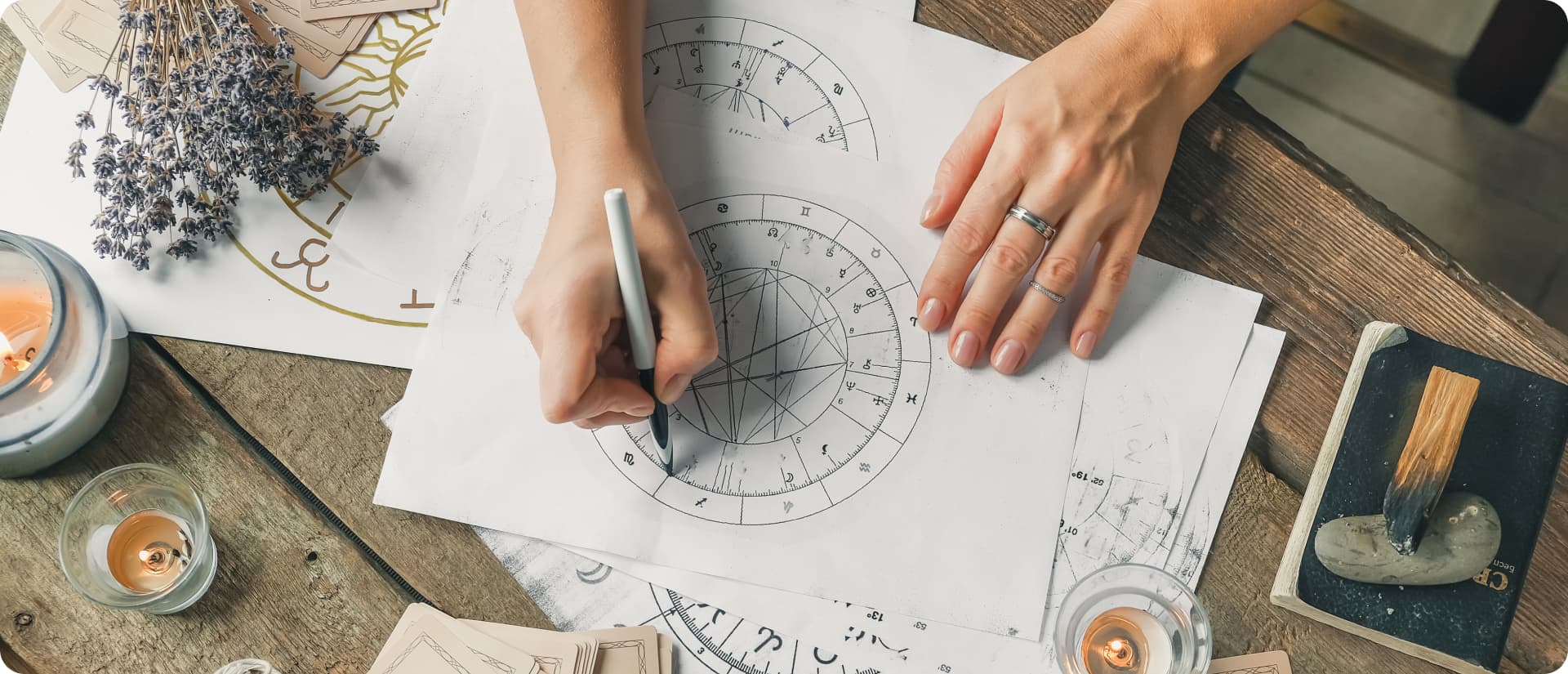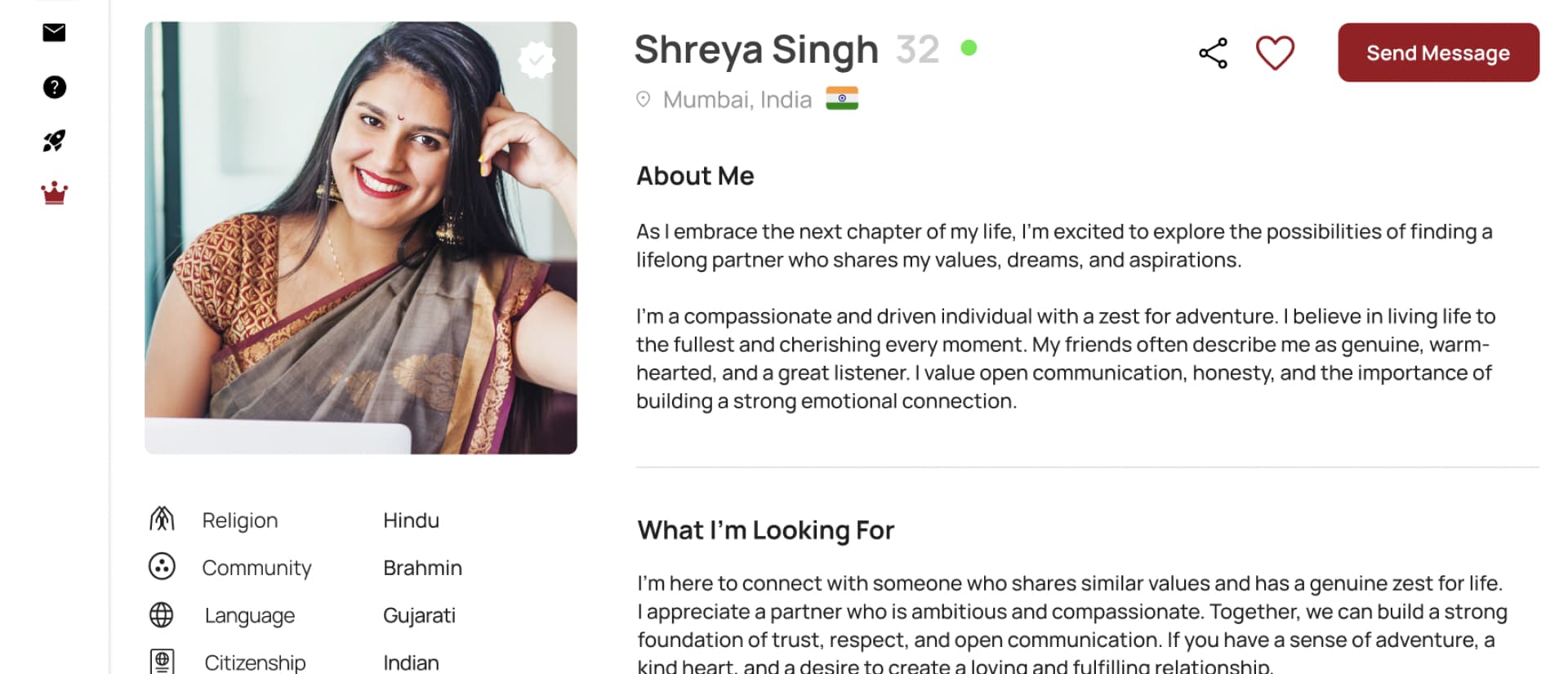How Important Is Horoscope or Kundali Matching in Marriage
When two people decide to spend the rest of their lives together, they often seek assurance that their union will be harmonious and thriving. One age-old method to assess this compatibility is horoscope matching, or Kundali Milan, as it is traditionally known in Hindu culture. But how significant is this practice in the modern context of marriage?
Through the lens of Vedic astrology, this process dives deep into individuals’ personal and cosmic orientations to determine their compatibility. However, with evolving societal norms and individual perceptions, the importance of this method in contemporary times is widely debated.
Understanding Kundali
Kundali, also known as Janam Kundali or a birth chart, is a detailed representation of the positions of various celestial bodies, including planets and stars, at the time of an individual’s birth. A Kundali is a map of the cosmos based on the exact time, date, and place of birth.
Its primary purpose is to help individuals understand their innate strengths and weaknesses and their life’s opportunities and challenges. In the context of marriage, Kundali determines the compatibility between the bride and groom, ensuring a harmonious and successful married life.
Elements of a Kundali
A Kundali comprises multiple elements, the primary ones being:
- Planets (Grahas): Nine celestial bodies, including the Sun, Moon, Mars, Mercury, Jupiter, Venus, Saturn, Rahu, and Ketu. Each planet holds a specific significance and influences various aspects of an individual’s life, such as career, health, relationships, and wealth.
- Houses (Bhavas): Twelve divisions in a Kundali, each corresponding to a particular area of life. These houses signify physical traits, emotional tendencies, aspirations, and experiences. Based on the placement of planets in these houses, predictions can be made about the individual’s prospects in those areas.
- Zodiac Signs (Rashis): The twelve astrological signs represent a specific energy pattern. A particular planet rules each zodiac sign and determines the character traits, skills, and weaknesses of an individual born under that sign.
The Key Role Of Horoscope Matching
Kundali plays a significant role in horoscope matching, ensuring compatibility between the bride and groom based on planetary positions in their respective Kundalis. This assessment is achieved by matching specific attributes, called ‘Gunas,’ divided into eight broad categories. Each category carries a specific weight, totalling 36 points (maximum). A high score in matching Gunas indicates strong marriage compatibility between the couple, thus promising a successful marriage.
Apart from matching Gunas, horoscope matching also evaluates the presence of Doshas or afflictions in the Kundalis. These Doshas may adversely affect the couple’s married life, and therefore, accurate analysis and appropriate remedies are employed to mitigate their impact.
Importance of Horoscope Matching
One of the primary objectives of horoscope matching is to analyze the marriage compatibility and harmony between the prospective bride and groom. By comparing their Kundalis, astrologers evaluate various aspects of their personality, temperament, and preferences.
A positive match indicates a strong connection between the couple, which can result in a successful, happy, and long-lasting marriage. This compatibility encompasses the couple’s emotional and mental compatibility. It considers other factors like financial stability, health, and shared values essential to fostering a harmonious married life.
Predicting Potential Challenges
Horoscope matching allows couples to foresee potential challenges they may encounter during their married life and offers remedies to minimize their impact. By examining the planetary positions in their Kundalis, astrologers can predict issues couples might face, such as financial difficulties, health problems, or compatibility issues.
This foresight is a valuable tool in helping couples navigate the complexities of married life and equips them with the necessary knowledge to overcome obstacles together. Moreover, horoscope matching can reveal the presence of specific Doshas that may adversely affect the couple’s marital life, and appropriate remedies are suggested to mitigate these Doshas.
Cultural and Traditional Aspects
Horoscope matching is deeply rooted in the cultural and traditional fabric of Indian society. For generations, it has been an integral part of the marriage process, reinforcing the sanctity and importance of this life-long commitment. Marriage horoscope matching enables individuals and families to adhere to age-old customs and practices while making the most critical decision of choosing a life partner.
In a society where marriage is not merely a union between two individuals but also a bond between two families, horoscope matching ensures the compatibility and goodwill that creates a strong foundation for lasting relationships. Furthermore, by relying on the wisdom of ancient Vedic astrology, horoscope matching carries forward the time-honoured knowledge and traditions, lending significance and authenticity to the institution of marriage.

The Process of Horoscope Matching
Horoscope compatibility analysis, recognized as Kundali matching in traditional Hindu astrology, is a long-standing practice to calculate the compatibility quotient between a prospective bride and groom.
Stemming from the belief that the motion of celestial bodies deeply impacts human life, this process goes beyond the superficial, considering the precise positions of astronomical entities at the time of an individual’s birth for an informed match. The intriguing steps of this comprehensive compatibility check are as follows:
Birth Charts Formation
The first step involves gathering precise elements: date, time, and geographical coordinates of the intending couple’s birth. Their accumulated information forms the basis for constructing the Kundalis or birth charts.
Functioning as celestial maps, these charts provide a detailed snapshot of the positioning of celestial bodies, including the sun, moon, and various planets, at the exact moment of birth. By providing an understanding of the cosmic blueprint of individuals, birth charts form the central fulcrum around which the wheel of marriage compatibility turns.
Examination of Natal Charts
Once the Kundalis are meticulously prepared, they must undergo intense scrutiny. The astrologer leaves no stone unturned while undertaking an in-depth survey of each natal chart. This examination reveals the precise location of each planet and celestial house at birth, central to the future course of compatibility determination.
Application of the Ashtakoot System
The heart of the horoscope matching process resided in the Ashtakoot Guna system. This traditional protocol system evaluates eight vital astrological categories, assigning each a score based on the degree of alignment. The comprehensive score can accumulate up to 36 points, with a higher total score indicating stronger astral compatibility. The fundamental categories include Varna, Vashya, Tara, Yoni, Graha Maitri, Gana, Bhakoot, and Nadi, each carrying significance for different aspects of life around spiritual, mutual control, health, sexual compatibility, intellectual, temperamental, love, and physiological factors.
Evaluation for Mangal Dosha
Amidst the various astrological phenomena that the astrologer monitors, one of extreme importance is the presence of the Mangal Dosha. A prospective bride or groom having this Dosha in their horoscope can impede compatibility, given the Dosha’s association with marital discord and even hardships in some cases. In such instances, an astrologer proposes remedial measures to alleviate the potential ill effects arising from the Dosha.
Comprehensive Compatibility Determination
Having dissected the individual horoscope, the astrologer collates all the information gleaned from the Ashtakoot Guna system to derive a compatibility score. This cumulative score, contingent on the alignment and correlation of the various Gunas, gives an overarching picture of the prospective couple’s compatibility. A higher score generally portends compatibility and marital harmony.
Remedial Suggestions and Consultation
During the marriage horoscope matching process, if there are any instances of doshas or astral afflictions, the astrologer deems it necessary to evoke certain remedies. Astrological cures range from the prescription of specific gemstones, rituals, or even adherence to specific fasting patterns that can work towards negating any negative astrological impacts.
Informed Decision Making
Bearing the fruits of the astrologer’s detailed analysis and subsequent consultation, the families of the intending couple can make a well-informed choice about proceeding with the marriage or reassessing their decision.
In encapsulation, as a practice, horoscope matching upholds the significance of individual and collective karma in shaping human life. Yet, in itself, it does not guarantee successful companionship. Like any human relationship, a successful marriage teeters on communication, mutual understanding, shared respect, and, most importantly, love. For many, horoscope matching forms an influential, yet not absolute, factor in the decision-making process, one viewed alongside other practical considerations in the modern, global context.
Common Gunas and Doshas
In Vedic astrology, Gunas and Doshas are significantly used in horoscope matching. An understanding of these terms provides insights into astrological compatibility.
Common Gunas (Ashtakoota)
The Ashtakoota system classifies eight fundamental Gunas, each awarded points that cumulatively indicate marriage compatibility.
- Varna (1 point): Determines the spiritual and intellectual coherence, referencing the societal ranking of individuals.
- Vashya (2 points): Signifies the balance of power in the relationship, reflecting physical and psychological compatibility.
- Tara (3 points): Related to birth stars, highlights health and wellness compatibility.
- Yoni (4 points): Gauges sexual compatibility through animal symbols linked to respective birth stars.
- Graha Maitri (5 points): Checks compatibility of moon signs influencing mental and emotional bonds.
- Gana (6 points): Categorizes individuals into divine, human, and demon, indicating temperament compatibility.
- Bhakoot (7 points): Assesses financial stability and family harmony.
- Nadi (8 points): Connected to pulse, checks health and progeny compatibility.
Common Doshas
Doshas represent unfavourable planetary positions in the birth chart and are spotlighted during compatibility evaluations.
- Mangal Dosha results from specific Mars’ placements, potentially causing marital discord and requiring remedies like marrying someone with the same Dosha.
- Nadi Dosha arises when partners share the same Nadi, raising health and progeny concerns. Consequently, caution is exercised.
- Bhakoot Dosha happens due to specific distances between moon signs, potentially disrupting harmonious relationships and seeking appropriate remedies.
- Gana Dosha may occur when partners belong to different Gana categories, causing compatibility difficulties due to varying natures and temperaments.
- Sarp Dosha is identified when all planets are hemmed between Rahu and Ketu, signifying life obstacles.
While these Gunas and Doshas are vital components in astrological analysis, they don’t solely guarantee a successful marriage. Various human elements – communication, respect, and shared values – significantly impact relationships. While marriage Kundali matching is an essential guideline, it shouldn’t be the decisive factor in matrimonial decisions.
What Happens In A Marriage When Horoscopes Don’t Match
In the enchanting dance of life, love transcends cosmic alignments, and marriages may indeed occur without horoscope matching. For couples who embark on this journey without marrying Kundali, it’s essential to recognize that their union’s destiny rests in their hearts and hands, not in the stars alone.
Though traditional astrological analysis may not have influenced their choice, couples can still seek spiritual and holistic solutions to overcome adversities. Here are a few soul-stirring remedies to help strengthen the bonds of love:
- Embrace Communication: The cornerstone of any thriving relationship, open and honest communication allows couples to understand each other’s needs, express their emotions, and grow together.
- Establish Trust: Trust is the foundation of a successful marriage, and through actions and words, couples must learn to rely on each other’s strength, wisdom, and integrity.
- Nurture Mutual Respect: Valuing each other’s opinions, beliefs, and aspirations helps cultivate an environment of mutual respect that lets the relationship flourish.
- Seek Professional Guidance: If challenges seem insurmountable, couples can turn to relationship counsellors, therapists, or even astrologers for advice tailored to their needs.
- Couples’ Meditation and Yoga: Regular mindfulness practices can foster a deep connection between partners, balancing energies and promoting spiritual growth.
In love and companionship, an uncharted course is rich with possibilities. Couples whose paths meld outside traditional horoscope matching can choose to shape their destiny with the right measures.
Modern Perspectives
As the world evolves, so does our understanding and valuation of traditions like astrological compatibility. While traditional practices such as matching Gunas and evaluating Doshas hold their relevance, they often come under scrutiny in today’s age and culture.
Critiques and Skepticism
Many question the validity and usefulness of horoscopes and Kundali matching. Critiques suggest that these practices have no scientific backing and that the faith placed in them is often problematic. Furthermore, these traditional methods may lead to undesired social practices, such as the discrimination of ‘Mangliks’ in marriage proposals. Systemic issues like these have fueled scepticism toward these customs and have prompted many to rethink their significance.
Personal Choices vs. Astrological Guidance
The modern perspective increasingly leans towards personal choices taking precedence over astrological guidance. While interesting to some, interpreting marriage horoscope and matching Gunas or identifying Doshas may influence people’s decision-making processes less than before. The modern interpretation of compatibility focuses more on shared values, mutual respect, shared goals, and personal compatibility, while traditional aspects may hold less importance.
Combining Tradition and Practicality
However, many have successfully tread the path of merging tradition with practicality. For these individuals, marriage Kundali matching combines old-world charm and practical considerations. They take the analysis not as an absolute prediction but merely as guidance, which can be altered by personal actions or karma. This approach creates a balance that respects tradition while considering practical aspects of modern living.
In fact, it would be best to say that in modern arranged marriages, prospects want first to interact and know about each other. It’s only after they find a strong connection and chemistry they proceed to check Kundali compatibility along with family involvement.
The interference of astrology in one’s life is becoming more of a personal choice, steering away from a mandatory societal norm. This shift illustrates our progress as a society toward autonomy, reason, and tolerance.
Takeaway
In conclusion, marriage horoscope or Kundali matching has been a long-standing tradition in assessing compatibility for marriage. Despite evolving societal norms and personal beliefs, the practice maintains its relevance and appeal for some segments of society, who find its principles and insights valuable.
Yet, a growing emphasis is placed on personal choice and practical compatibility rather than astrological guidance alone. As a result, the significance of Kundali matching remains subjective, based on individual perceptions and societal context. As we continue navigating the bond of marriage, the balance between tradition and practicality will be a crucial determinant of how we employ such practices.
At Mohabbatein, a leading matrimony platform based in Dubai, we transcend traditional approaches like marriage horoscopes or Kundali matching, recognizing that true compatibility extends beyond astrological charts. While respecting these time-honoured traditions, we focus on fostering deep connections that ignite that irreplaceable spark, ensuring couples share more than just compatible attributes. We believe this is what makes us a reliable matrimony platform globally.
Our belief is that matrimony comes from deep connections based on shared experiences, mutual understanding, and emotional connections. Each person’s relationship should be in line with the stars in their own unique way.







